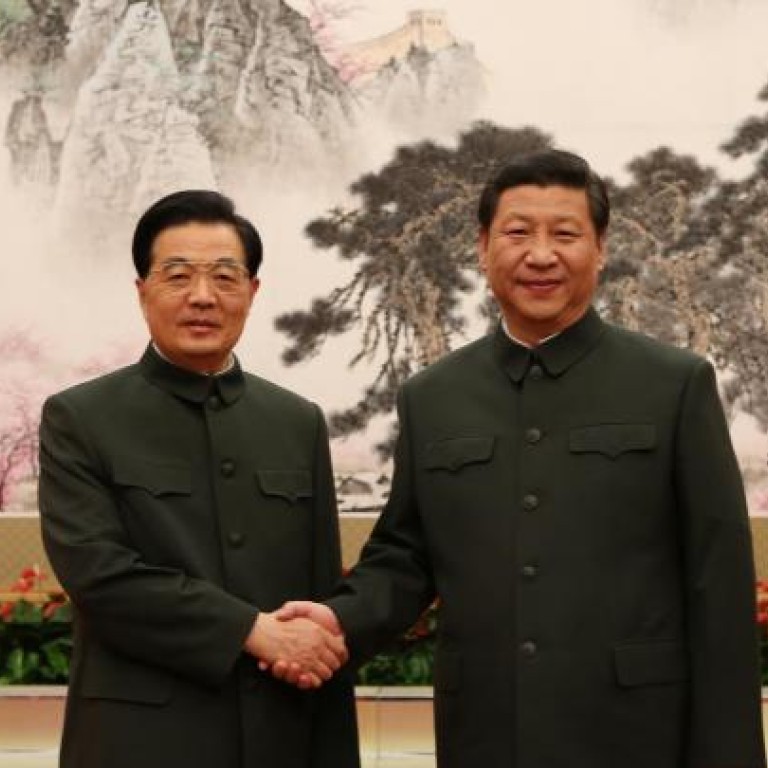
Xi Jinping commands special military commission meeting
At a special meeting of the Central Military Commission, Hu Jintao gives ringing endorsement of his successor's ability to unite comrades
Xi Jinping has shown the world that he is now in charge of the People's Liberation Army - chairing a special meeting of the Communist Party's Central Military Commission (CMC) a day after being put in charge.
And President Hu Jintao, who on Thursday passed the chairmanship of the body that controls the PLA, along with the leadership of the Communist Party, gave his ringing endorsement to his successor at Friday's meeting.
The incoming and outgoing top brass were all present.
Hu told the special meeting that Xi was "a competent party general secretary and CMC chairman", and highlighted his successor's experience.
"Comrade Xi Jinping can, for sure, shoulder the great responsibility of being chairman of the Central Military Commission, and uniting and leading the commission to fulfil great and historic missions," state media quoted Hu as saying yesterday.
Xi told his audience that Hu's own decision to step down as CMC chairman with immediate effect had "shown his foresight as a Marxist statesman and strategist, and his broad mind and noble character".
Hu's predecessor Jiang Zemin remained chairman of the military commission for two more years after handing over the post of party chief in 2002.
Xu Guangyu, a senior researcher at the China Arms Control and Disarmament Association in Beijing, said: "[Hu and Xi] were telling all retired leaders not to cling to power any more and to trust the next generation of leaders."
The speech also marked another major departure from the past. When Hu inherited the top military post from Jiang in 2004, he stressed in his inaugural speech that under the PLA's "political principle" it "would make no promise to give up the use of force" to secure reunification with Taiwan.
Eight years later, Xi's inaugural address sidestepped the Taiwan issue completely.
"Cross-strait relations have improved since Ma Ying-jeou came to power in 2008 - it's unnecessary to mention such a sensitive issue to provoke Taiwanese compatriots," Xu said, adding that Xi had spent 17 years in Fujian , just across the strait from Taiwan, and was clearly confident on the subject.
"Xi also realised that the real knotty problem now is in the East and South China seas, which need both Beijing and Taipei to work together to defend our national sovereignty," Xu said, referring to territorial disputes over various islands.
Taipei-based political commentator Lin Baohua, also known as Ling Feng, said Xi also wanted to show Japan and the US that he would continue to use economic means to solve the Taiwan problem. "Xi realises that if he uses military force to liberate Taiwan, the cost would be much higher than the use of economic forces," he said.
Hu and Xi also reiterated the army's absolute loyalty to the party. Xi made it clear senior officers should set examples for troops in anti-corruption campaigns.

